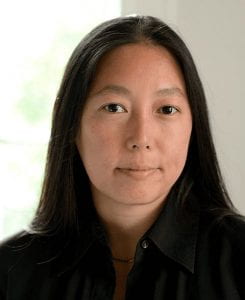“When you study memory, you come to realize it’s both accurate and inaccurate…I think having skepticism about your own perceptions and judgment of memory is healthy.”
 An interview with Janice Chen, PhD, Assistant Professor of Psychological & Brain Sciences, Johns Hopkins University
An interview with Janice Chen, PhD, Assistant Professor of Psychological & Brain Sciences, Johns Hopkins University
By: Michelle Johnson (01/28/22)
What kind of research are you working on right now?
I use naturalistic approaches in most of my research which means that even though we’re doing laboratory experiments, we’re trying to bring stuff into the laboratory that is closer to people’s daily experiences. That began with having people watch movies, listen to stories, and then tell their memories as a story, in the way that they would communicate with others in their daily life. I love doing experiments like that – it’s a lot of fun, and you see things that you didn’t expect.
We’re also studying daily behaviors like how people browse the web. We might tell them to find a restaurant where they’d like to eat or map a route to a place they’d like to visit – things people normally spend a lot of time doing anyway. We’re studying self-guided behaviors and people’s memory of those behaviors, then contrasting the types and structure of those memories against movie narrative memory, which we have already learned a lot about.
What’s something surprising about doing research that you’ve really enjoyed?
One thing about working in psychology is that you think about your own behavior quite a lot. If you really love thinking about why people do the things they do and why you yourself do the things that you do, then getting to grapple with those kinds of questions is a great aspect of being in this field.
Has your research impacted how you approach parts of your life?
When you study memory, you come to realize it’s both accurate and inaccurate. It’s valuable to acknowledge how inaccurate memory can be and to understand the conditions under which inaccuracy is more likely. That can guide your behavior in a good way, like not being overconfident about things that you think you remember because you know there are circumstances in which you might be wrong. You kind of have this error bar which you can carry around with you and apply to your own experiences, and it’s not even specifically about memory but generally about perceptual bias. I think having skepticism about your own perceptions and judgment of memory is healthy.
What’s the best piece of advice you’ve received about pursuing a life in science?
Doing research is not an easy road by any means. College is challenging, graduate school is challenging, and it continues to be difficult – there are easier periods and tougher periods. Therefore, it’s important that when you get out of bed in the morning, you are motivated by the things that you are working on. The questions that motivate your research really need to excite you in a consistent and deep way. When choosing what you want to spend time on, it’s important to listen to your gut about what you really find exciting and motivating.
Click here to learn more about Dr. Chen’s work.
Click here to go back to the “Interviews with Scientists” page.
